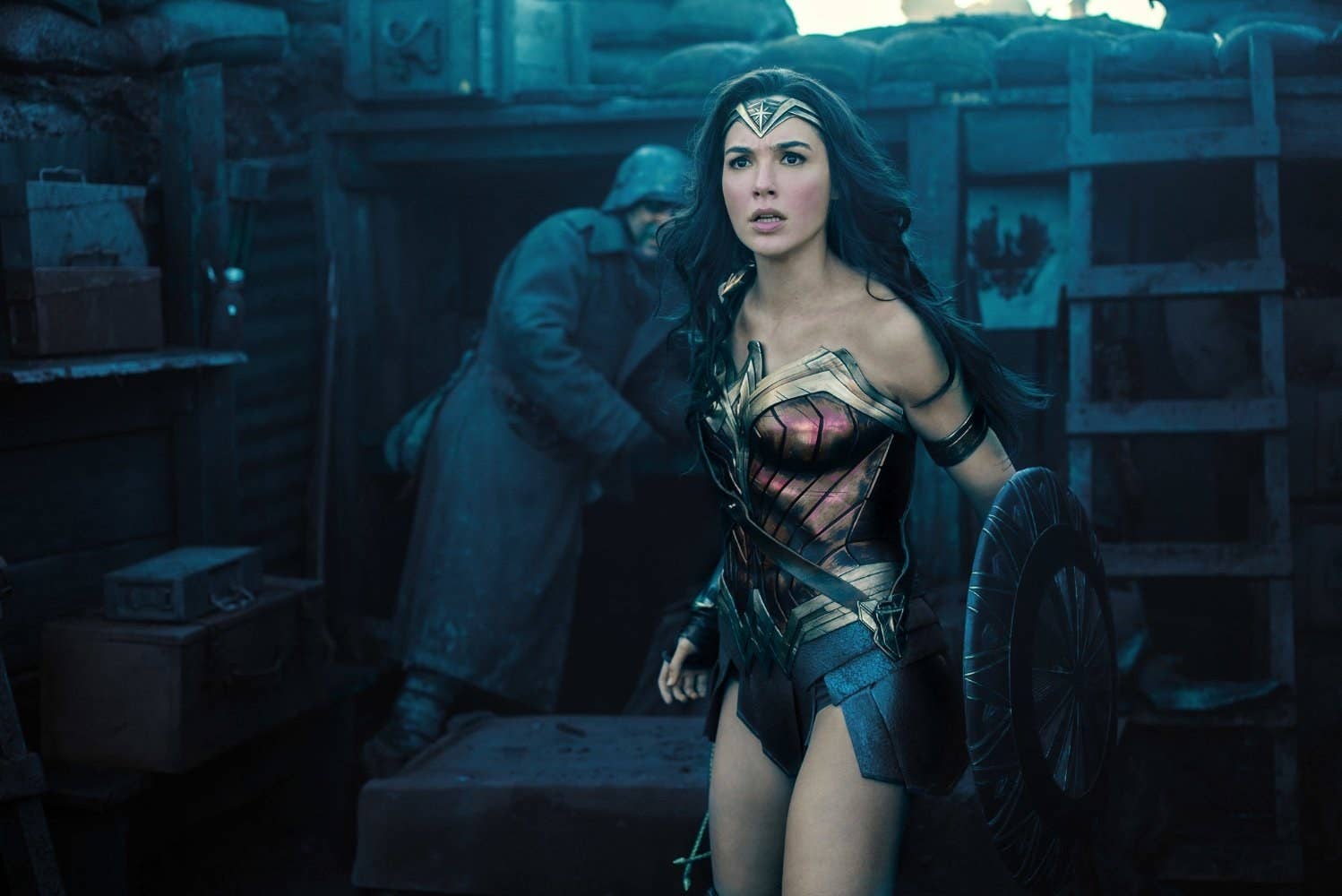
Wonder Woman does not go undercover easily.
In what’s maybe the most gratifyingly funny interlude in Patty Jenkins’ new film, the Amazon — real name Diana (Gal Gadot) — tries on a series of 1910s-London-appropriate outfits at the behest of Steve Trevor (Chris Pine, really as charming as he’s ever been), an American spy working for British intelligence who’s attempting to get his new colleague to do some blending in.
Diana submits herself to the doomed exercise with anthropological curiosity, hoisting up ruffled skirts to see how they perform during kicks, dismissing a high collar as itchy and confining, and finally emerging in an outfit that was clearly intended to come off as prim, but instead looks fabulously bluestocking chic. Steve retaliates by reaching for the go-to accessory of all superheroes in preposterous normcore disguise — glasses. “Really? Specs?” his beleaguered secretary Etta Candy (Lucy Davis) groans. “And suddenly she’s not the most beautiful woman you’ve ever seen?”
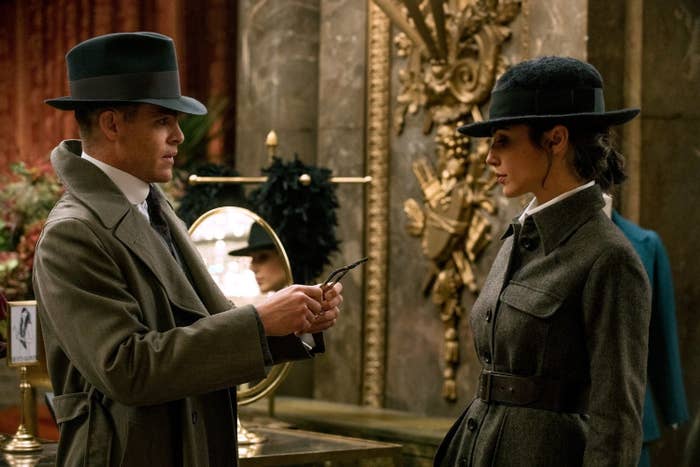
Diana is a battle-trained, semi-divine, and, yes, statuesquely lovely princess from a mystical island inhabited only by female warriors. There is no hiding her light under a barrel in Wonder Woman, an endearingly earnest film whose biggest surprises come from how much it diverges in tone and style from the earlier superhero installments with which it shares a fictional world.
In playing catch-up with Marvel’s inescapable franchise of linked movies, DC made the pragmatic choice to skip right from Man of Steel to the big stuff, to supergroup movies Batman v Superman: Dawn of Justice and Suicide Squad — cynical, aggressively dark productions plagued with confounding motivations, odd tonal choices, and too many characters to service. It was in Batman v Superman: Dawn of Justice that Gadot’s Wonder Woman was introduced, in a set of appearances that included a scene in which she sits at a laptop and effectively watches teasers for future DC Extended Universe installments.
Elegantly done it was not, though Diana and her niftily cello-forward musical theme made an impression in even squandered screen time, there amidst the brooding men and their memories of their mothers. She seemed to enjoy herself, something neither the recent, world-weary conceptions of Batman or Superman could say.
What’s striking about her turn in the spotlight in Wonder Woman, beyond its milestone status as a female-centric studio superhero feature directed by a woman, is the movie’s sense of elated lightness. Aside from the clunky framing device featuring a present-day Diana working at the Louvre, Wonder Woman is freed up to tell a straightforward origin story that takes its title character from a childhood on the Amazon island of Themyscira into the tail end of World War I.
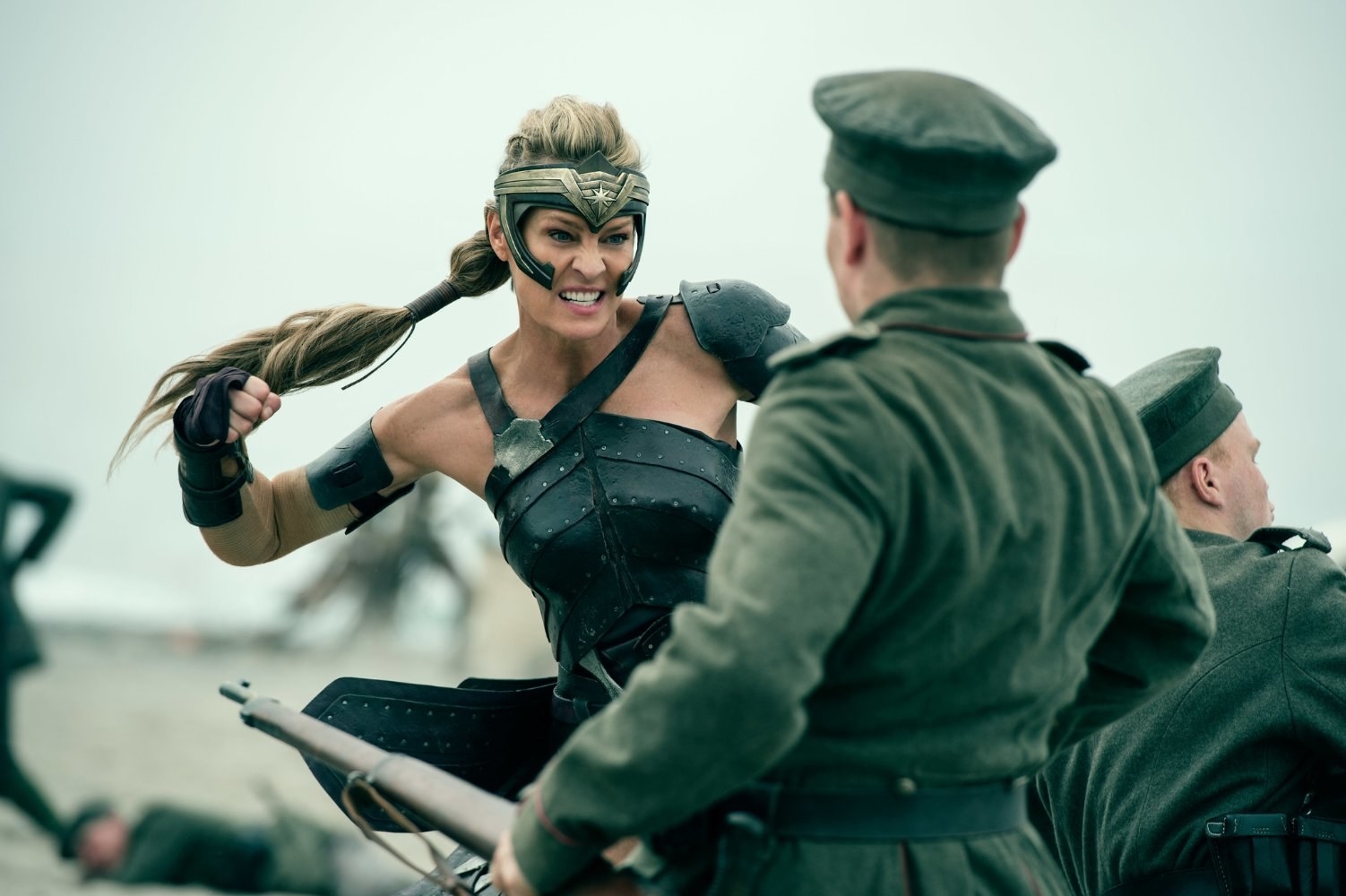
It’s a saga, written by Allan Heinberg, with a decent sense of humor, which any story prominently featuring Zeus and a Lasso of Truth demand. Wonder Woman is as outlandish as she is awe-inspiring, and everyone she comes into contact with from the outside world regards her with the appropriate mixture of admiration and disbelief.
That includes Steve, the first man she’s ever met and her eventual romantic interest, who brings that outside world right onto Themyscira’s unspoiled beaches when his plane plummets into the waters nearby, with German forces in pursuit. A fight between the interlopers and the Amazons, led by General Antiope (a brawny, braid-sporting Robin Wright), provides evidence of the women’s leaping, archery-enhanced prowess as well as the ugly power of guns.
It’s enough to spur Diana to act against the wishes of her mother, Queen Hippolyta’s (Connie Nielsen), and leave the island with Steve to fulfill what she believes is her duty and destiny: to kill Ares, the Greek god of war. Ares, she’s convinced, is the cause of the all-consuming conflict Steve’s described to her — World War I. She believes the only reason "the war to end all wars" could be happening is due to Ares' influence, and that once she defeats him, the violence will be over.
DC’s Wonder Woman, like Marvel’s Captain America, was a character originally conceived during World War II, both of them brawling with Nazis and sporting outfits that evoked the American flag. Wonder Woman’s shift to the first World War feels like an attempt to create some distance from the unavoidable Captain America: The First Avenger comparisons evoked by the plunking of another superhero into period battle, finding comic book–worthy foes hiding amidst the historical ones.
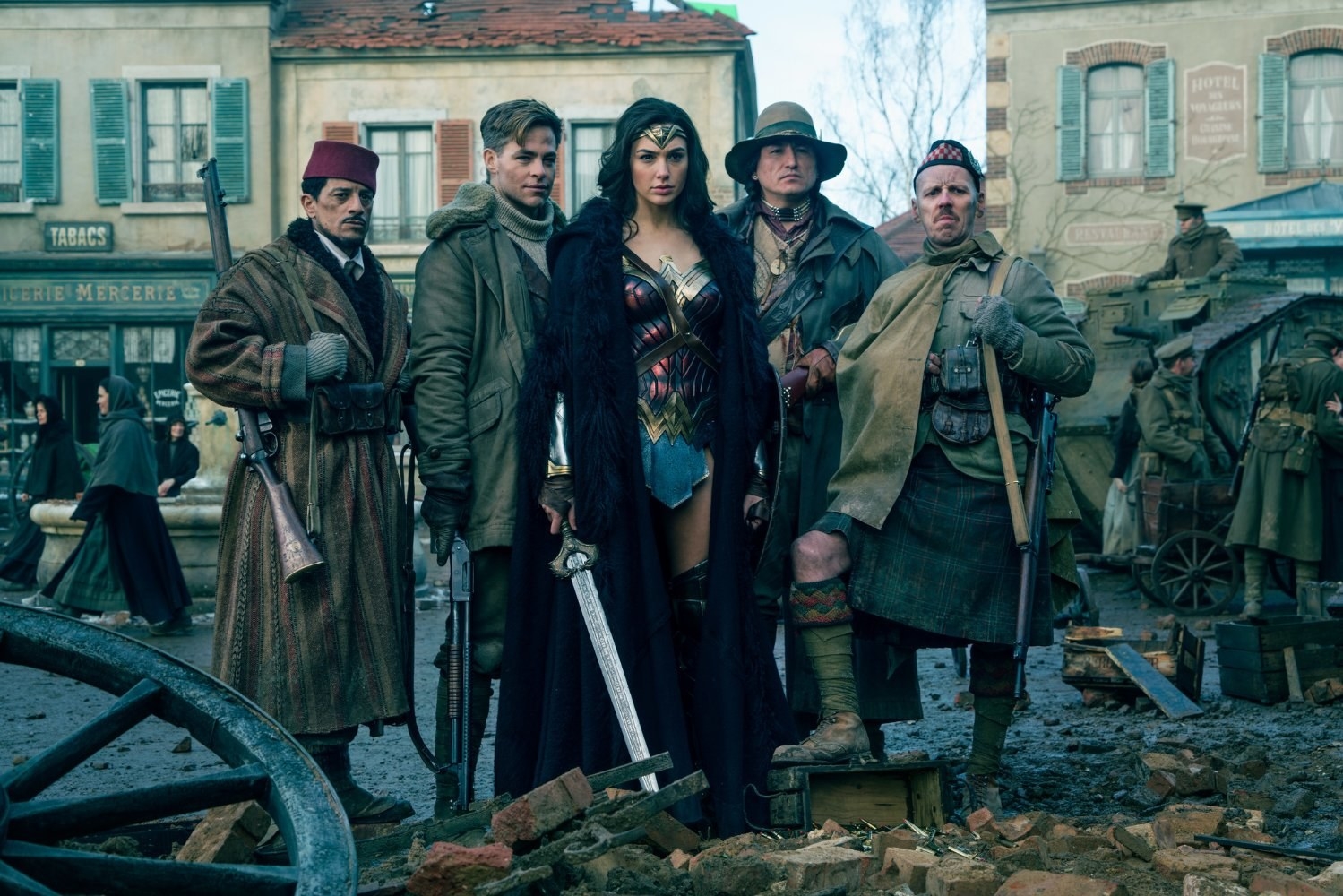
Like Captain America, Diana is an idealist who’s strong in her convictions but also inexperienced, driven by an untested certainty that she knows what’s right. For someone who's just stepping off the isolated island on which she grew up for the first time, she's recklessly sure she knows what's best for everyone else, that all it will take is the destruction of the right bad guy — whether it’s the German Gen. Ludendorff (Danny Huston), his poison gas-manufacturing chemist Doctor Maru (Elena Anaya), or someone else.
War has yet to be eradicated from either the movieverse or the real one, so it’s not news that the situation ends up being more complicated than she assumed. Which comes as a shock to no one but Diana herself, after she finagles a way out to the front with Steve and his trustiest mercenary friends — the silver-tongued Sameer (Saïd Taghmaoui), the Scottish sharpshooter Charlie (Ewen Bremner), and the Native American smuggler Chief (Eugene Brave Rock). They’re a seen-it-all crew who, of course, reveal their hearts of gold right when Diana’s confidence is shaken and, along with it, her conception of mankind as fundamentally good unless tainted by forces of evil.
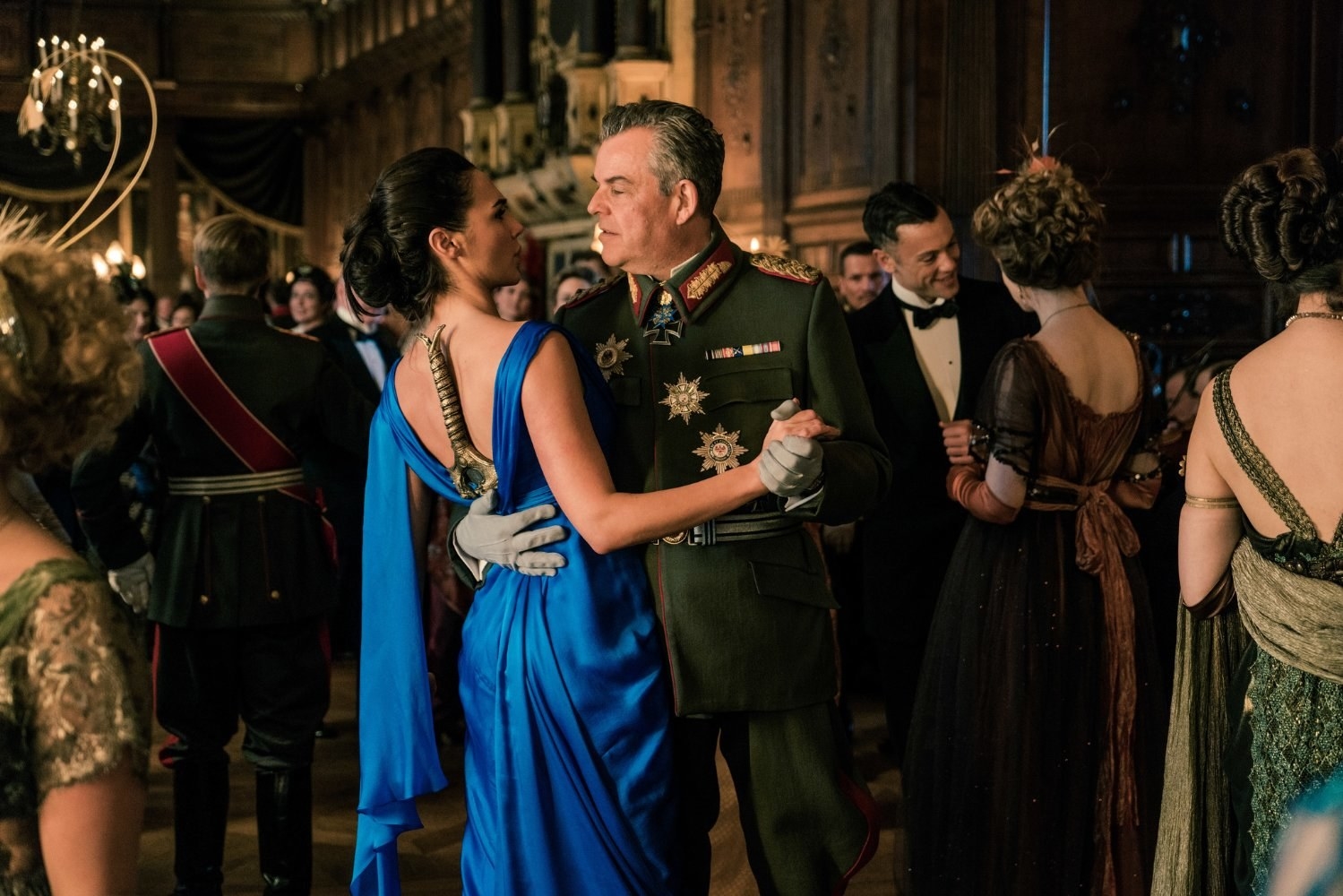
Diana, with her fantastical Hellenic backstory, has less explicitly patriotic roots than the military-created Captain America, but in Wonder Woman she serves as an affecting riff on American ideology anyway: She’s a well-intended but naive interventionist, an outsider crashing into a political quagmire she doesn’t really understand but is certain she can fix anyway, sure the solution is as simple as the correct baddie getting killed off.
That’s why, perhaps, her first appearance on the battlefield is so moving (while her climactic conflict is bigger but comparatively underwhelming): Stepping out onto no-man's-land in full regalia and facing down enemy machine guns in order to free an occupied village, she could be a fantasy of the US as we’d like to imagine ourselves — larger than life, always able to ascertain the truth, and driven by a desire to help that is pure and conveniently unambiguous (no endless counterinsurgency campaigns for her!).
It’s the kind of sequence that can give you goosebumps and provoke a few tears — Wonder Woman emerging from the trenches to save the day. She has the staunchness of someone who sees the world in neat black and white...until she’s forced to consider whether she still feels invested in a humanity capable of doing harm without the influence of a god. Naturally, that god does eventually turn up, because a movie like this needs closure, even if the lesson its heroine learns is that there’s no such thing.
Who knows how Diana will handle it when the Nazis — in whose shadow she was created — come along, or what she does during the murky global conflicts that follow World War II. Fortunately for her, for now, the DCEU is intent on skipping forward to the present day to Justice League, and then Aquaman, and on and on to the less defined future, presuming the world doesn’t end. Because of Wonder Woman, the film and the character, that grand corporate plan doesn’t seem quite as hubristic; she doesn’t feel like another bewilderingly warped, barely recognizable take on an iconic character. She feels like a genuine superhero, intent on protecting those in need — you can tell, even when she’s wearing glasses.
